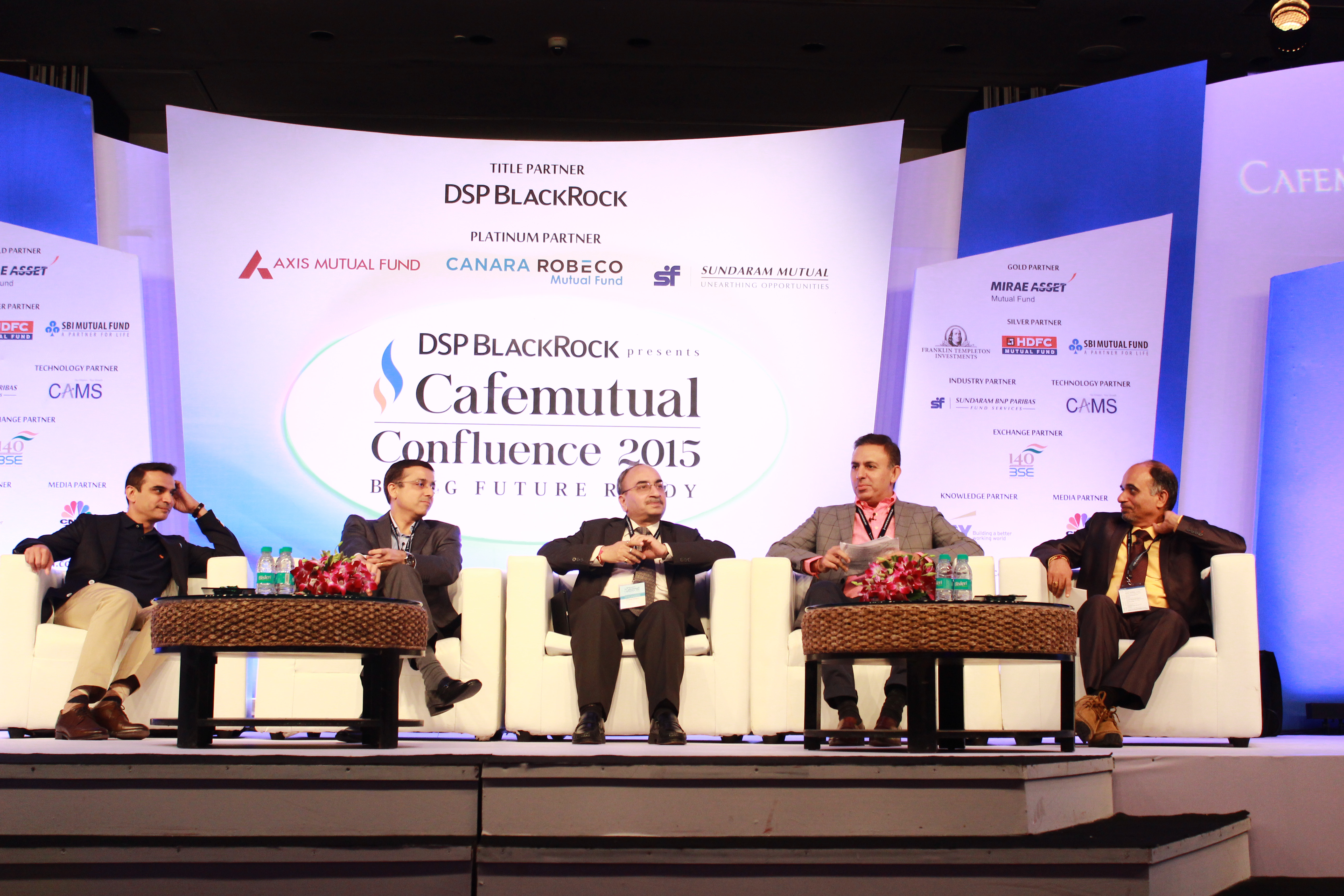
Rajiv Bajaj: There are only 10,000 active distributors in India. How do we attract new talent and retain them?
Ramesh Bhat: I started my career after completing my higher secondary education. My father could not afford my education so I started selling FDs. I think we must educate fresh graduates. Today, the average age of distributors is 35 and above. We can request the government to come out with a degree/course in distribution and advisory. This will help generate awareness among youth about this profession.
We always talk about investor education. Why don’t we discuss about distributors education which is equally important? The regulator should focus on distribution education as well.
Dinesh Khara: It’s a very thought provoking subject. It’s a major social and commercial objective which we need to achieve. Unless there is an economic sense, no one will we interested to join this industry.
The margins are very thin in this industry, so distributors need to scale up. To achieve scale, we have to adopt technology. AMCs can provide this technology to distributors.
Also, distributors need to have conviction in their business. I think the potential is huge and there is a demand for advice.
Besides, we can also reach out to CAs who can take up mutual fund advisory.
Vishal Kapoor: The biggest concern is how we can expand the number of distributors. In this context, banks have an important role to play. I think public sector banks can play an important role in distribution of mutual funds. PSUs can reach out to new investors by offering simple MF products. This would increase the number of people selling mutual funds.
Having said that, what can we do to help the current set of distributors? We have spent a lot of time trying to increase revenues but we have to equally look at pushing down the cost. We need to cut down distribution cost by enhancing efficiency, doing away with duplication and streamlining processes.
On the regulatory front, we need clarity and some consistency in the direction of policies. Policies and regulations keep changing frequently. So all stakeholders need to work together.
Karan Datta: To attract youngsters in this profession, we need to have the infrastructure which is already available. We also have platforms offered by NSE, BSE, Fundsindia, Ifast and MF Utility but people are not aware about them. We just need to create awareness about this infrastructure.
Secondly, we should abstain from talking about products. It is immaterial because the world of the investors is all about their goals. Please start talking about dreams and aspirations. As Ramesh said, use some part of IAP money for distributor education. We have already made a recommendation to AMFI in this regard.
Rajiv: I asked a colleague of mine why do you work for? He said I work for three R’s - reward, respect and recognition. As advisors, do we feel respected as a community? What is written about us in the media? Do we feel respected by regulators? Around 60-70% audience here feels that we are not respected or recognized.
Karan: When we are talking about respect, we need to realize that we are responsible for changing investors’ lifestyle over time. This is a noble profession. As far as recognition is concerned, it should be at the industry level and not at the institutional level.
Rajiv: Ideally, most of these things are best done at AMFI level. AMFI has recently started advertisements to generate awareness about mutual funds. How about running advertisements through AMFI for creating awareness to become a distributor?
One of the action points is on loyalty points. Also, rewards should not be international trips. Instead, we can nominate IFAs to IIM for five-year program on portfolio management. Your thoughts Ramesh.
Ramesh: We need to offer proper guidance and training to new IFAs. They should be trained and groomed under senior IFAs at least for three years. After this, they can be allowed to sell in the markets independently.
Rajiv: Speaking of training, Vishal tell us something about Arthik Gyan which is an initiative of Financial Intermediaries Association of India (FIAI).
Vishal: It is a financial literacy program for students (8th, 9th and 10th) which was envisaged by the government. There is an exam conducted for these students which caters to only personal finance. The test is promoted by NCFE (National Centre for Financial Education), an entity promoted by RBI, SEBI, IRDA, PFRDA, FMC and NISM. Through FIAI, 18,000 students have been trained in 40 cities in the last two years who are going and teaching their parents about financial planning.
Rajiv: SEBI came up with the idea of new cadre of distributors (postal agents, retired government and semi‐government officials, retired teachers and retired bank officers, etc.) to increase the number of distributors? Why hasn’t it taken off in a big way?
Dinesh: A very important ingredient of marketing is that you need to understand the dynamics of the product. While the regulator’s intention is good, the new cadre of distributors won’t be able to sell the product if they don’t understand it.
Here are some of the action points generated in this discussion:
- Educate youth about advisory business
- AMCs should invest in distributor education
- Make business viable for distributors
- Cut down distribution costs by increasing efficiency and streamlining processes
- Adopt technology
- Recognition programs for distributors
- Reach out to CAs
- Reach out to first-time MF investors with simple products through PSU banks
- Create a roadmap for change in policies
- AMFI can start a campaign for attracting distributors
- Share success stories of distributors on AMFI website
- AMCs should start loyalty programs for distributors on qualitative parameters
Click here to watch the discussion.







